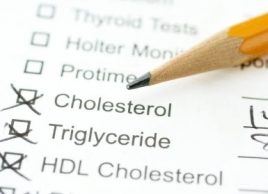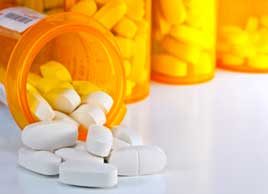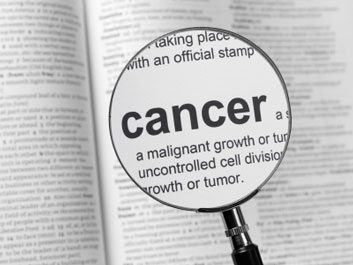
Cholesterol and heart disease
“I don’t think there’s been a substance so well linked as cholesterol and heart disease,” says Dr. Jacques Genest, a researcher in cardiovascular diseases at the Research Institute of the McGill University Health Centre in Montreal. “The data is just overwhelming that the relationship between cholesterol and heart disease is causal and direct.”
The top advice to reduce cholesterol – and improve your health overall – is what Dr. Genest calls the “top five”: don’t smoke, eat well, exercise, reduce stress and maintain a healthy weight. In fact, 83 percent of heart attacks could have been prevented by diet and lifestyle changes, says Dr. David J.A. Jenkins, professor in the Department of Nutritional Sciences at the University of Toronto. But that doesn’t mean researchers have solved the puzzle of exactly what cholesterol does and how it works. Here are some of the latest interesting findings – and further questions researchers are working on.

HDL may not be so good
The common wisdom is that HDL is the “good” cholesterol and LDL the “bad” – levels of both are measured in blood tests. Higher HDL levels, it was thought, were indicative of a lower risk of heart disease. However, a recent study suggests that while that might be true, it’s not a simple causal relationship: rather than a decrease or increase in HDL directly affecting health, HDL levels may be a marker of other factors instead.
Research is ongoing; in the meantime, if you’re concerned about your HDL levels, talk to your doctor about how this research might affect your treatment.

There may be new drug treatments on the horizon
When it comes to studying the efficacy of cholesterol-lowering drugs, Dr. Genest clarifies that lowering cholesterol levels in the blood is one thing, but what really matters is lowering disease incidence as well. Statins, for example, have been definitively shown to reduce mortality levels, especially in patients who have had a previous heart attack or similar event.
Dr. Genest mentions two types of drugs currently undergoing trial. One type inhibits an enzyme called CETP, which results in higher levels of HDL. The other is a new class that directly affects how the body metabolizes cholesterol. Both are being studied to see not just how they affect cholesterol levels, but how they affect cardiac mortality. Watch for news of how the trials pan out.

Cholesterol targets are getting lower
As research moves forward, primary care physicians are given updated guidelines for cholesterol and health. One recent change is that target numbers have become a grey zone rather than a thin black line.
“You produce a significant change in cardiovascular risk” with lower levels of cholesterol, says Dr. Karl Iglar, associate professor in the Department of Family and Community Medicine at the University of Toronto. In other words, there’s no single magic number when it comes to cholesterol – the lower it is, the healthier you are.

Risk levels can now be more fine-tuned
Your doctor uses a number of factors to assess your risk of heart disease: in addition to cholesterol levels, she might take into account your family history, your weight, your blood pressure, how much you exercise and whether you smoke. Your cholesterol targets are related to other risk factors: the higher they are, the lower your cholesterol should be and the more likely you’ll be advised to take medication.
But what if you’re somewhere in the middle? Dr. Iglar says that a relatively new assessment, the hs-CRP test, measures inflammation in the body and helps stratify moderate-risk patients into low-moderate and high-moderate. “That’s often how my patients make decisions about taking drugs,” he says. “They’re more inclined to take medication if they have higher risk.”

Cholesterol may be linked to cancer
A number of studies have shown a link between high levels of cholesterol and higher risk of cancer, and there has been evidence that people taking cholesterol-lowering drugs have a reduced risk of cancer, as well. And a recent genetic study from the University of Rochester Medical Center shows that there may be a genetic component to the link.
The study shows that a certain gene, called ABCA1, affects how cells process cholesterol – cholesterol that is a vital component of how they function. When this gene ceases to work in cancer cells, they no longer die off as they should and thus contribute to tumour formation.
Researchers aren’t ready to recommend cholesterol-lowering drugs for cancer prevention – that’s a way off yet – but this is one more reminder of the complex role cholesterol plays in our bodies.

Coming soon: Cholesterol tests, no bloodwork required
If you hate the sight of needles, this one’s for you: a new method has been developed by researchers in India that uses a photo of the back of your hand to measure cholesterol levels.
According to the study, cholesterol is built up in the creases of your fingers; the photographs are entered into a computer program that compares them to a database of similar images associated with known cholesterol levels.
While the test is no replacement for full bloodwork – at least, not yet – it could be a useful tool for testing larger populations more cheaply than using traditional methods.
Related:
• The worst fats for high cholesterol
• 5 natural ways to lower your cholesterol
• Myths and truths about cholesterol
